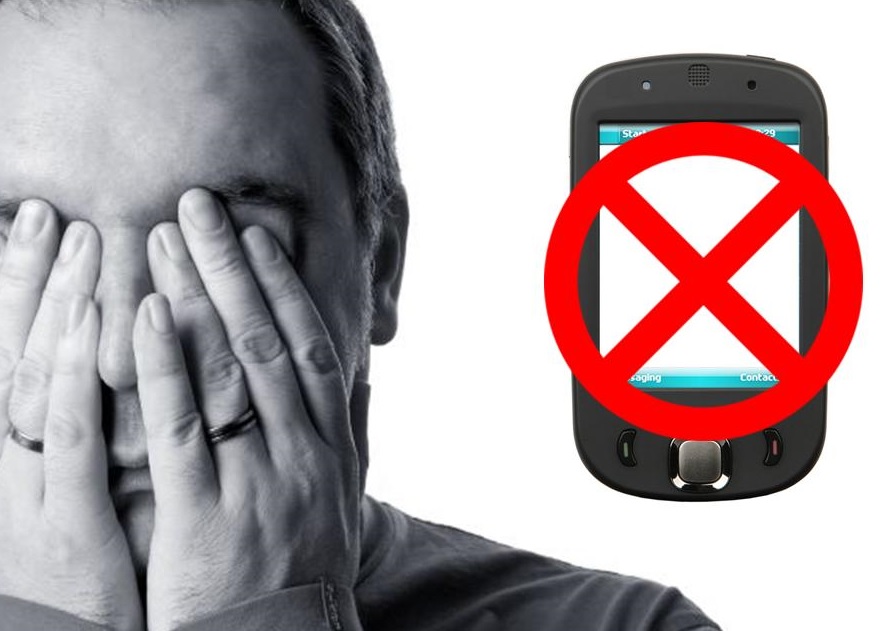A study in the United Kingdom has revealed that many people fear having to live without mobile devices.
The results of a brand new study regarding the dependence that people in the United Kingdom have on their mobile gadgets has just revealed that over half of the population of that country suffers from a condition called “nomophobia”, in which the individual feels actual fear when thinking about having to live without his or her device.
This new anxiety condition goes well beyond simply thinking about a world without smartphones.
In fact, there are a number of different elements of being out of touch with the gadgets that can lead to symptoms of nomophobia. These can include having the battery run out, losing a cellular signal, or simply losing sight of the device. The term itself was developed as a short form for “no mobile phone phobia”. This term was originally coined in the United Kingdom following a YouGov study in which the anxieties related to mobile device use were examined.
This latest study only underscores what has previously been determined about dependencies on electronic gadgets.
 The latest survey was commissioned by AppRiver, which is a security analyst firm. This research found that among the respondents, 42 percent brought their mobile gadgets with them to the beach when they were on vacation, and that one fifth of them used their devices for checking their email when they were in bed.
The latest survey was commissioned by AppRiver, which is a security analyst firm. This research found that among the respondents, 42 percent brought their mobile gadgets with them to the beach when they were on vacation, and that one fifth of them used their devices for checking their email when they were in bed.
One in every four of the participants in the mobile gadgets study also used their devices for checking emails and texts while they were out on a dinner date. It also revealed that it was women who were more likely to do this than men, by a difference of ten percent. Women were also 17 percent more likely to actually experience nomophobia.
Beyond those figures, the study also underscored the fact that while people seemed highly reliant on their gadgets, and they experienced fear when faced with situations when they would not be able to use their devices, they still had a notably low interest in the actual security of their device in terms of protecting their sensitive and private data.
 The mobile shopping experience is falling short of what people in the United Kingdom expect.
The mobile shopping experience is falling short of what people in the United Kingdom expect.
A recent study is showing that about half of all people in the United Kingdom who have tried m-commerce find that the shopping experience over that channel is falling short of their expectations.
Nearly 50 percent of the participants of a U.K. study said that their expectations are not being met.
The survey results showed that among people from the United Kingdom who use m-commerce for shopping, the ways in which the experience was falling short of their expectations were in the speed of use (49 percent) and in the failure to provide simple, functional and practical navigation on a site (48 percent).
The study determined that m-commerce may be able to do better if the experience was improved.
The study was called “Mobile Commerce: What consumers really want”. It was conducted by EPiServer and it also showed that among consumers in the United Kingdom, 54 percent will give up on an m-commerce website and leave if they find that they are experiencing any difficulties in using it.
According to the EPiServer product manager, David Bowen, “Our research shows that mobile devices are becoming the first choice for accessing a website or app, regardless of location.” He also went on to say that the result of this is that the m-commerce experience is growing in its importance for the web strategy of virtually any business.
Bowen pointed out that today’s consumer is mobile savvy and will not be as forgiving if m-commerce websites and apps fail to provide the functionality that they would expect to receive when using a website on their desktop computers. He stated that “mobile first” is quickly becoming the strategy to choose when it comes to any business that intends to use smartphones and tablets as a part of any element of its selling – from providing product information to business locators, or actually purchasing a product.
The m-commerce research indicated that nearly two out of every three participants accessed websites using their smartphones every day. However, at the same time 28 percent said that they would choose a competitor company if they experienced struggles using their first choice.
 The latest survey was commissioned by AppRiver, which is a security analyst firm. This research found that among the respondents, 42 percent brought their mobile gadgets with them to the beach when they were on vacation, and that one fifth of them used their devices for checking their email when they were in bed.
The latest survey was commissioned by AppRiver, which is a security analyst firm. This research found that among the respondents, 42 percent brought their mobile gadgets with them to the beach when they were on vacation, and that one fifth of them used their devices for checking their email when they were in bed.
 The mobile shopping experience is falling short of what people in the United Kingdom expect.
The mobile shopping experience is falling short of what people in the United Kingdom expect.